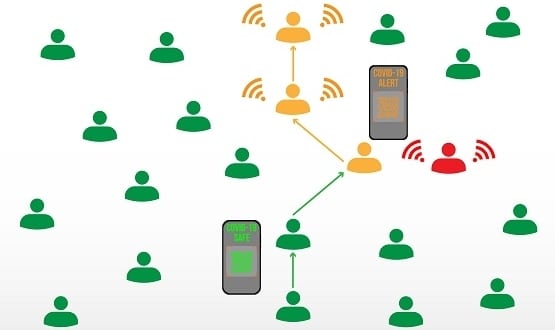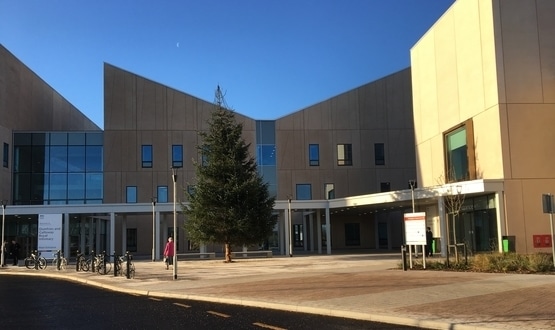NHS Scotland and Microsoft develop QR code contract tracing system
- 25 May 2021

NHS Scotland has teamed up with Microsoft to develop a track and trace system for businesses as Covid restrictions continue to be eased.
The partnership has seen the development of an app and QR code function for contact-tracing purposes.
Business can download a unique QR code which is then scanned by people visiting the venue to take them to the government website where they can provide their contact details.
The app allows users to save their contact details to avoid filling out the form at every new venue they visit.
Deryck Mitchelson, director of digital and security at NHS Scotland, said: “The collection of contact information is required by the Scottish government as part of their efforts to tackle the spread of Covid-19.
“However, many businesses are ill-equipped to handle the collection of that data, the security that needs to be in place to handle it and searching through it when NHS Scotland needs to trace someone. Some were using pen and paper to record that information, which isn’t ideal.
“The QR code solution is seamless and removes all that work from business owners. They register for the initiative and place the QR code poster in their workspace where customers can scan it. They don’t have to do anything else and can focus on providing great service.”
The QR code provides a quicker, more reliable way to conduct contract tracing. Without a digital solution tracing a Covid-19 patient can be a slow and unreliable manual process – NHS tracers call businesses that the patient has visited who then have to find that person’s contact details as well as the details of everyone else who was there that day.
Using a QR code to digitally collect visitors details means people who have potentially come into contact with the virus can quickly and easily be traced.
“We know that a delay in contact tracing can help the spread of the virus. If it takes three days to get in contact with someone, they could have the virus and be potentially spreading it,” Mitchelson added.
“If a patient has scanned a QR code, we can understand where they have been within minutes. The quicker you track and trace, the quicker you can break the transmission chain.”
The contact information from the QR codes goes straight into NHS Scotland’s cloud-based data lake that runs on Microsoft Azure. That data is fully encrypted and only available to NHS Scotland contact tracers who have the right digital key.
They must get approval to access the data and can only view the information they have asked to see. The system is fully auditable and shows what information was accessed and when. After a certain number of days the data is automatically deleted.
Microsoft is only the provider of the cloud platform and has no access to any of the data stored on NHS Scotland’s platform.
Michael Wignall, Azure business lead at Microsoft UK, added: “NHS Scotland has created a QR code solution that can help quickly identify locations that a Covid-19 patient has visited.
“By using Microsoft Azure, NHS Scotland can be confident that the solution is hosted on a reliable, resilient and secure cloud platform that puts healthcare professionals in control of the data they collect. We are delighted to be working with NHS Scotland on such a vital service for the public.”





1 Comments
A bit like how we are doing it here in NZ then. Works well until complacency stops people scanning in. The trick to remember is that not everyone has a mobile phone or the tech knowledge of downloading an app and using the camera on the phone. Education on use is as important as the app itself. Consumer buy in will either make it work or flop.
Comments are closed.